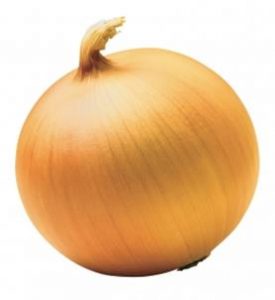Dogs are generally intrigued by what we are eating and while it is ok to give them the occasional tit bit it is important to be aware that some foods can be extremely dangerous to our favourite furry friends! Here are a few of the common culprits that can lead to an emergency trip to the vets.
Chocolate Chocolate intoxication is a common problem in dogs especially around Easter and Christmas. Chocolate contains caffeine and a stimulant known as theobromine which are both poisonous to dogs. The level of theobromine varies in different types of chocolate but the general rule is the darker the chocolate the more dangerous it is, with cocoa powder containing the highest levels of theobromine.Chocolate:
Chocolate intoxication is a common problem in dogs especially around Easter and Christmas. Chocolate contains caffeine and a stimulant known as theobromine which are both poisonous to dogs. The level of theobromine varies in different types of chocolate but the general rule is the darker the chocolate the more dangerous it is, with cocoa powder containing the highest levels of theobromine.Chocolate:
Clinical signs are normally noticed within the first 24 hours after ingestion. Depending on the quantity and type of chocolate eaten, the signs shown can range from vomiting, diarrhoea, restlessness, seizures or coma in severe cases.
If you are concerned your dog has eaten chocolate please contact your local veterinarian at once. Depending on the amount ingested your vet may make your dog vomit or feed him charcoal to help absorb any chocolate left in his stomach.
 Raisins & Grapes
Raisins & Grapes
The toxic substance within raisins and grapes is currently unknown. It has been reported that ingestion of even a small number of raisins can lead to kidney failure in dogs and as such is always considered an emergency. This is definitely a food to avoid! Dogs suffering from raison toxicity can show vomiting, diarrhoea and lethargy which can proceed to anorexia, a transient increase in urination followed by either a decrease or not urinating at all. Dogs that manage to survive acute intoxication may have persistent kidney disease.Raisins and grapes:
Xylitol
This is a relatively unheard of toxicity in dogs. Xylitol is an artificial sweetener that is commonly found in sugar free chewing gum and diet foods. In humans, eating xylitol does not affect our blood sugar levels but in dogs eating just a small amount can cause a marked drop in blood sugar levels leading to clinical signs such as lethargy, disorientation and vomiting with signs progressing to collapse and seizures.
Onions Onions and all members of the onion family (garlic, cloves and shallots) can lead to gastrointestinal (stomach and intestine) upset and can also damage a dogs red blood cells if ingested in large enough quantities. Signs of poisoning usually start to show a few days after ingestion and may include weakness and lethargy and will sometimes produce orange to red tinged urine. These dogs should be seen by a veterinarian immediately and in severe cases may require a blood transfusion.Onions:
Onions and all members of the onion family (garlic, cloves and shallots) can lead to gastrointestinal (stomach and intestine) upset and can also damage a dogs red blood cells if ingested in large enough quantities. Signs of poisoning usually start to show a few days after ingestion and may include weakness and lethargy and will sometimes produce orange to red tinged urine. These dogs should be seen by a veterinarian immediately and in severe cases may require a blood transfusion.Onions:
Macadamia nuts:
Although not usually fatal, ingestion of macadamia nuts can cause dogs to experience weakness, especially in back legs, depression, low grade fever and they appear to be in pain. Signs normally begin 12 hours after ingestion and may persist up to 48 hours. Although only transient more severe signs may benefit from veterinary care.
 Avocado
Avocado
Avocado can commonly cause vomiting and diarrhoea if ingested by dogs. This is due to a substance called Persin that is contained in the leaves, fruit, seeds and bark of avocados. Ingestion of the stone can also lead to obstruction requiring urgent veterinary care.Avocado:
Avocado is especially toxic to birds, rabbits and some larger animals including horses where it can cause breathing difficulties and a build up of fluid around the heart.
If you are concerned that your dog may have ingested any of the above please contact your local veterinarian for advice and guidance. The vet will normally ask the age, breed and weight of your dog and then the amount of the toxic food thought to have been ingested and at what time. If they have eaten chocolate the vet will also ask you about the type of chocolate ingested and the quantity of cocoa written on the packet.
Leigh Sobye BVSc MRCVS
For a PDF version you can print out Click HERE
